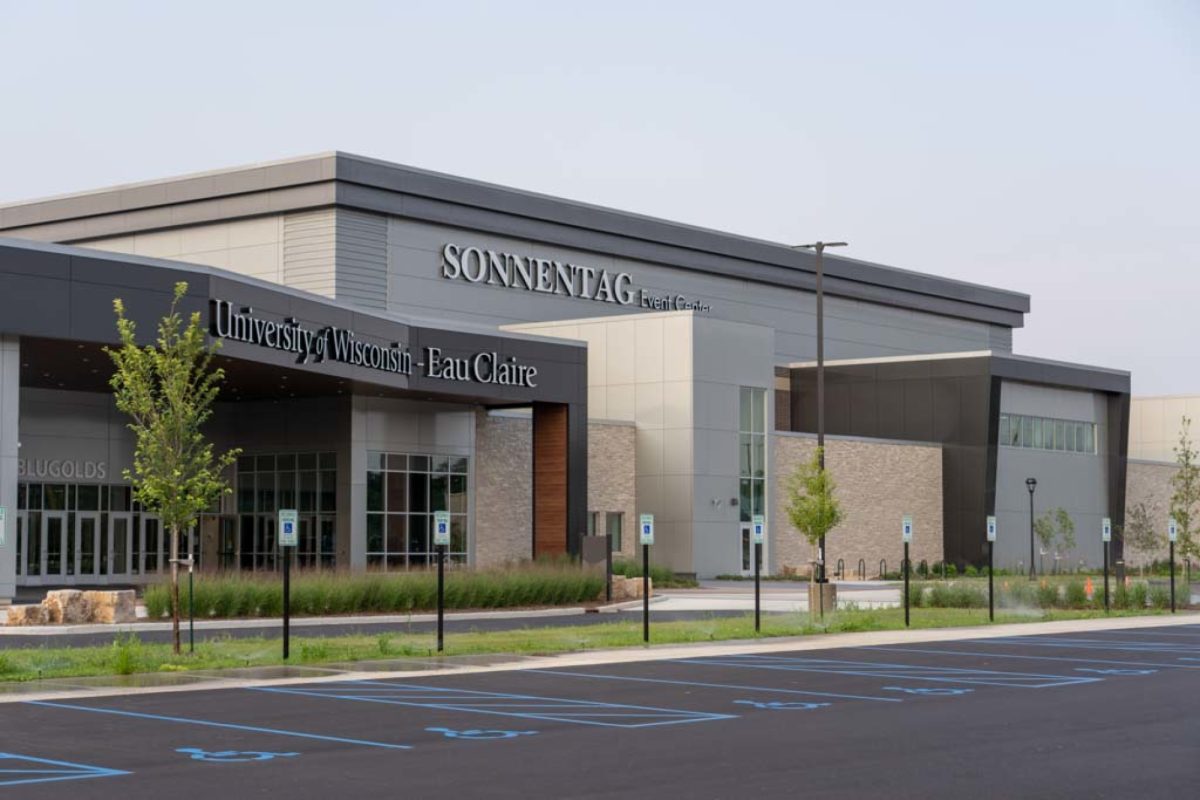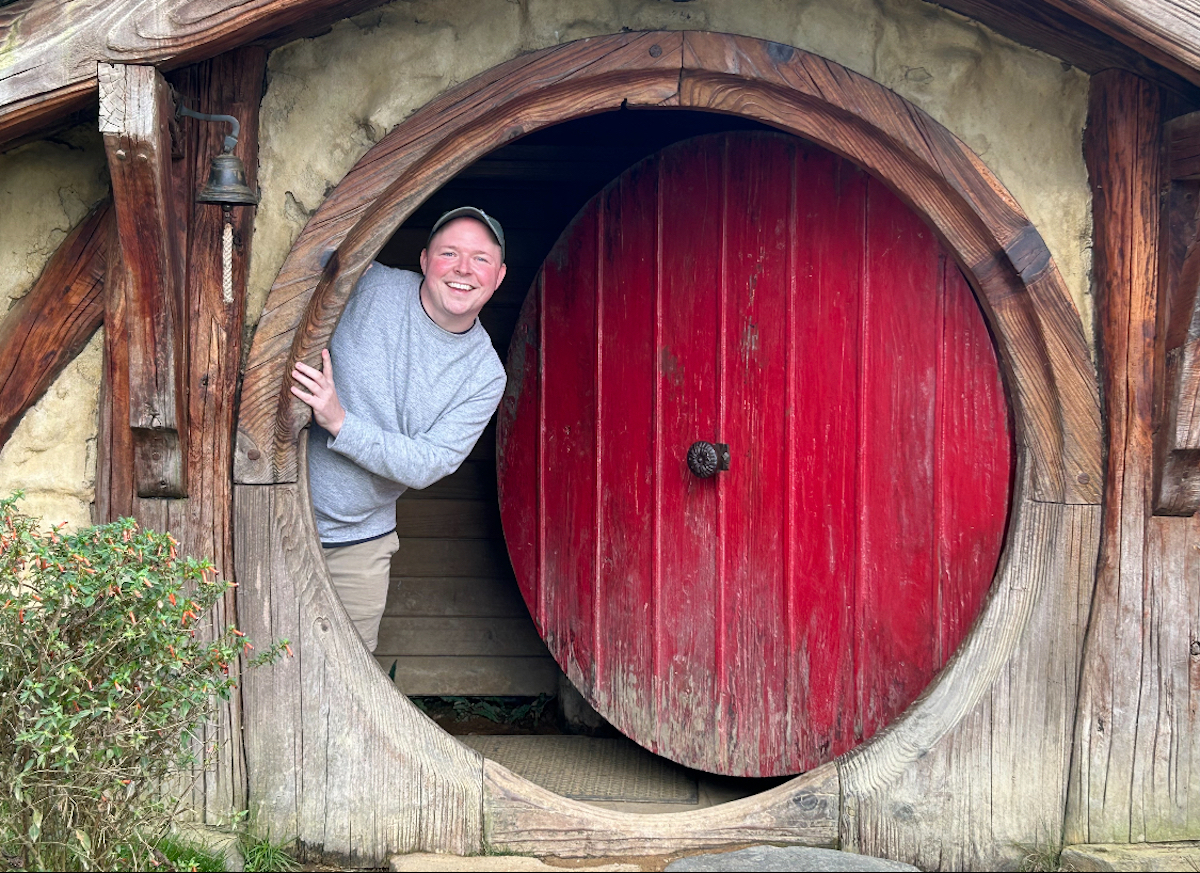On March 11, the Leader-Telegram published an Opinion article regarding physical accessibility at UW-Eau Claire, which was prompted by the plans for renovations to Vicki Lord Larson Hall and McIntyre Library shared during Governor Tony Evers’ visit to Eau Claire, described in another article by the Leader-Telegram.
The article was primarily centered around a statistic included in the article: “about 8.8% of all students at UW-Eau Claire are registered as having a diagnosed physical disability and need special accommodations.”
According to Katie Bublitz, the director of the Services for Students with Disabilities office and TRIO Project AIM, 8.9 %of the student body is registered with the disability office for a variety of reasons.
“Statistically, undergraduate students have a higher rate of having a disability — that’s where that 21% comes into play, but just because someone has a disability doesn’t mean they have to register with the disability services office,” Bublitz said. “Students only need to register with our office if they want to, or if they want to receive academic related accommodations or housing related accommodations.”
At a more local level, within the UW System, 9.6% of students are registered as disabled with the university, Bublitz said.
While UW-Eau Claire does pose challenges related to accessibility due to the physical landscape and pre-Americans with Disabilities Act buildings, Bublitz said the challenges that the campus faces are not irregular among other Wisconsin schools, or across the nation.
Lily Eisele, a third-year organizational communications student who is active in disability advocacy on campus, said that although the campus still faces challenges related to the landscape and architecture, those on campus are consistently supportive of accessibility efforts.
“With the SSD office especially … in the past couple of years, they have transformed it from ‘this is the office that gives you accommodations’ to ‘this is the office where we want to help you no matter what the concern is,’” Eisele said.
Eisele, who is also the personnel director for Student Senate and an ambassador and chapter leader for the Neurodiversity Alliance, said that a major issue is a lack of knowledge of what could be done to increase accessibility on campus.
She also said she was grateful for the open mindedness of the university in regards to accessibility efforts.
Eisele said that new changes in McIntyre Library, Vicki Lord Larson Hall and Hibbard Humanities Hall are examples of the product of these accommodations. However, barriers do remain.
Sydney Zimmerman, a third-year speech, language and hearing services student, described her challenges on campus as a wheelchair user, including lips on doors, the width of doorways, working elevators and small spaces.
“Last semester, an elevator was broken in HHS … so my class had to get moved to first floor for a little bit,” Zimmerman said.
Zimmerman, who is an advocate for the needs of disabled students, said that the university excels in transportation.
Students with limited mobility can request rides in conveyance vans at scheduled times. Zimmerman also said that the vans will come and pick her up if she places a call at an unscheduled time. Such transportation options are important for a campus with a hill and a river.
Bublitz said UW-Eau Claire is working to eliminate such barriers.
“We have had an increase in students with physical related disabilities attending our campus this year, and so we have actually put together — it’s our mighty spreadsheet — of every concern that students have brought to our attention, facilities’ attention,” Bublitz said. “Student Senate has been wonderful too in advocating,” Bublitz said.
Similarly, UW-Eau Claire periodically applies for funding from the Universities of Wisconsin Capital Planning and Budget office to address accessibility issues on campus.
Bublitz said that UW-Eau Claire has completed smaller projects using other funding opportunities. UW-Eau Claire does use its own funds for some projects as well.
For future improvements, Zimmerman said classroom seating is a major issue.
“I think all of my classes this semester, we’ve had to change something so I can go to class easy,” Zimmerman said.
Bublitz said the physical awkwardness of adjustable height tables, which often force students with physical disabilities to sit in a remote area of the classroom.
Eisele said she also aspires to achieve opportunities in the future in regard to accessibility.
“Nobody from SSD is on any of the building and planning committees and stuff like that for new buildings, and we want someone who represents people with disabilities in all of those conversations and all of those committees,” Eisele said.
Zimmerman said that while UW-Eau Claire certainly faces problems regarding physical accessibility, there are a myriad of groups and individuals working behind the scenes — both students and staff — to improve the experience of disabled students.
“I feel like it has improved a lot since I was here freshman year; we’ve been working for a lot of things,” said Zimmerman.
Eisele said she sees that improvements can continue into the future.
“If we want to become a leader in healthcare, our campus has to reflect that because the people who use healthcare the most are disabled people. And so I think that we should strive to be a leader in accessibility on campus within the UW system within Wisconsin, and within the country itself,” Eisele said.
Crist can be reached at cristes9272@uwec.edu.







